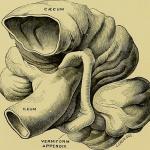“The hygiene hypothesis suggests that our immune system works best when it has been exposed to a diversity of foreign others and that population measures of hygiene, such as running water, waste disposal systems have not so much
microbiome
Obesity. It's a big fat problem. And, as with all big fat problems, somebody else is to blame.
In honor of Thanksgiving, it is time to turn to the beloved cranberry.
By Lito Papanicolas, South Australian Health
Ah, our body’s microbiome, the bacteria living in symbiotic harmony in our gut, that newly discovered source of wellness, its mysteries only slowly being revealed. Our microbiome is an inner ecology of Planet Us.
I will never be out of a job because literally, every single day, something idiotic is trending either on Google or Twitter. Today, the trending term is "Rubber Duck."
Colon cancer kills more than 50,000 Americans each year. One in 22 men and one in 24 women will be diagnosed with colon cancer in their lifetime. Currently, patients rely on colonoscopies to detect pre-cancerous growths called polyps.
“Blow, winds, and crack your cheeks! Rage, blow!”
--Shakespeare's King Lear
“You are what you eat” – that phrase often forms the basis for dietary advice. And in some instances, that information can be helpful. In particular, I am thinking about the role of salt and high blood pressure or hypertension.
Proper functioning of the human body relies on microbial partners.









